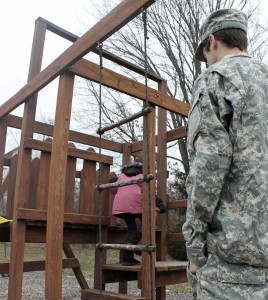 It’s a freezing cold December day at Fort Stewart. Families stand on bleachers, waiting for the soldiers of the Third Infantry Division to arrive. Among these military families is senior Jade Shinn. Her father is coming home after fighting in Iraq for the past year. She grips a sign that says, “Welcome home, Brewster,” and stares across the open field. As she watches, soldiers walk out from the trees and line up in front of the families. A voice announces for the families to find their soldier, and Shinn takes off.
It’s a freezing cold December day at Fort Stewart. Families stand on bleachers, waiting for the soldiers of the Third Infantry Division to arrive. Among these military families is senior Jade Shinn. Her father is coming home after fighting in Iraq for the past year. She grips a sign that says, “Welcome home, Brewster,” and stares across the open field. As she watches, soldiers walk out from the trees and line up in front of the families. A voice announces for the families to find their soldier, and Shinn takes off.
“It was like a scene out of a movie,” Shinn said. “The soldiers ran to the families, and the families ran to them.”
Intuition sends Shinn running towards the left. She is the first one in her family to spot her dad. She basically pushes two soldiers out of the way to get to him.
“We were both crying,” Shinn recalls.
Her father, Danny Brewster, is home from his second tour in Iraq. After reaching his Expiration of Term of Service with an honorable discharge, Brewster is finally home with his family. This time for good.
“Stepping off that plane and marching across that field—seeing families and friends clapping and cheering— it’s one of the best moments of my life,” said Brewster. “It’s one of the greatest feelings in the world knowing you made it through hell to come home to your family.”
The transition home hasn’t been easy for Brewster. He is one of the 20 percent of returning soldiers that suffers from Post-Traumatic Stress Disorder (PTSD). PTSD is an anxiety disorder that can affect a person who has been through a traumatic event. The events of war often leave soldiers at a loss because of what they experienced. Like many soldiers suffering from PTSD, Brewster was angry and couldn’t sleep very well. He relived his battle experiences in his nightmares.
“You couldn’t wake him up because he would swing at you,” Shinn said. “It seemed like a part of him was gone because he had seen what he had seen.”
Many returning soldiers have these same problems. In addition to nightmares and flashbacks, they feel disconnected from the “normal” world. Sometimes it is difficult for them to communicate with civilians.
Brewster struggles the most with large crowds. Going out for groceries isn’t as easy as it once was. Even mundane and ordinary tasks have become more complicated. When Brewster walks into Walmart, his anxiety level soars. Veterans are constantly, automatically on alert for an enemy. Even in the safety of Walmart, Bruster never lets his guard down. After about 15 minutes, he can’t stand the crowds any longer. He has to leave.
“If I go somewhere, I get what I need, and I go home,” Brewster said. “I don’t get out much. I haven’t for three or four months now.”
This irregular behavior is typical with victims of PTSD. The transition home from war, for many troops, is a transition back to a normal life. Television shows, domestic activities, civilian jobs–these can all be triggers for anxiety and dysfunction. Irritability spurs and tensions in households rise. Doctors with the John Conchran Veteran’s Clinic in St. Louis have found that, in many ways, PTSD makes the transition harder.
“I’m relieved that he’s not in the war because I don’t have to constantly worry about him being on leave,” Shinn said, “but it’s also harder on him.”
Brewster has spent most of his time home looking for work. Recently, he has applied to work with a railroad company, Walmart and a resort hotel. However, with the return of thousands of other veterans, finding work has been difficult. Not
to mention, his struggle with PTSD makes it difficult for Brewster to find a job. The struggle isn’t only with himself, but also with employers who doubt his ability to hold himself together. Although he applied at many places, he remains
unemployed.
“It’s like as soon as they find out it’s a mental issue, they’re like, ‘Oh, sorry. I don’t have a job for you at the moment,’” he said.
In spite of the current obstacles that stand in his way, Brewster is hopeful. He started the enrollment process for a trade school that allows him to gain work as a truck driver. Brewster is seeking aid in his battle with PTSD, and hopes that it eventually get better. While his transition hasn’t been a glamour story, he is slowly working back to normal. Even with the burdens he bears, he and his family know he is better off at home than where he was a year ago.
“At first, when he joined the army, I was angry at him for leaving me,” Shinn said. “Now, I realize that what he did was something to be proud of. It was something to support his family even though he had to sacrifice time with his family.”




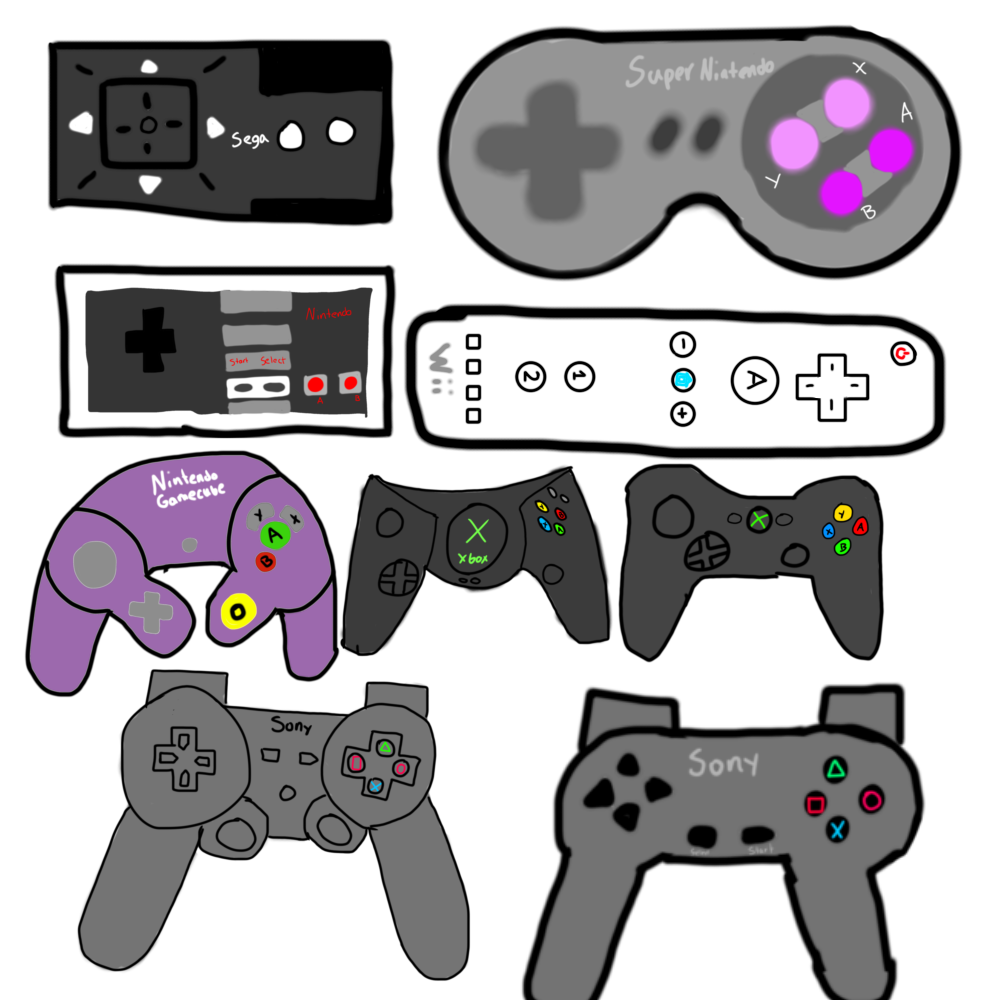
![FHN Boys Varsity Volleyball Team Goes Against Troy [Photo Gallery]](https://FHNtoday.com/wp-content/uploads/2024/03/IMG_7545-300x200.jpg)
![FHN Students Watch the Solar Eclipse [Photo Gallery]](https://FHNtoday.com/wp-content/uploads/2024/04/4.8.24-solar-eclipse_-300x200.jpg)
![FHN JV Boys Volleyball Beats Troy [Photo Gallery]](https://FHNtoday.com/wp-content/uploads/2024/03/IMG_7408-300x200.jpg)
![Girls Varsity Soccer Takes a Loss to the Timberland Wolves [Photo Gallery]](https://FHNtoday.com/wp-content/uploads/2024/04/IMG_0237-300x200.jpg)




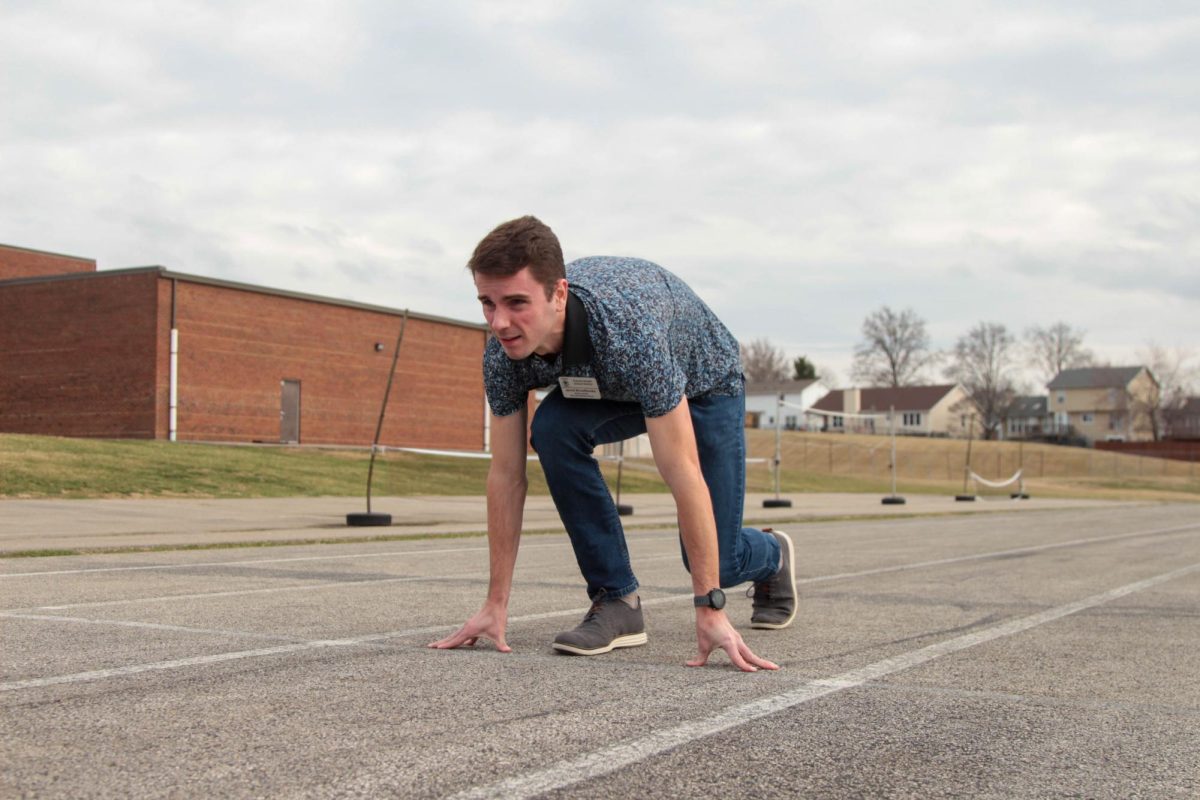


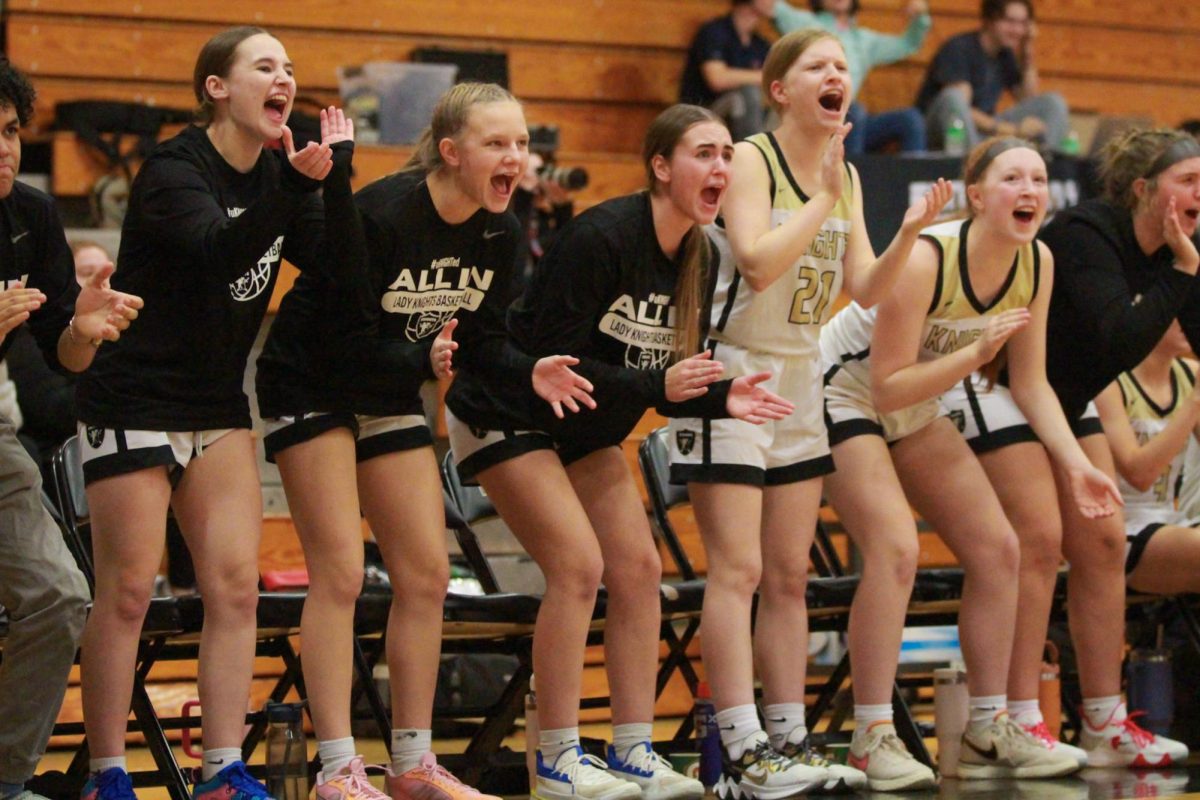
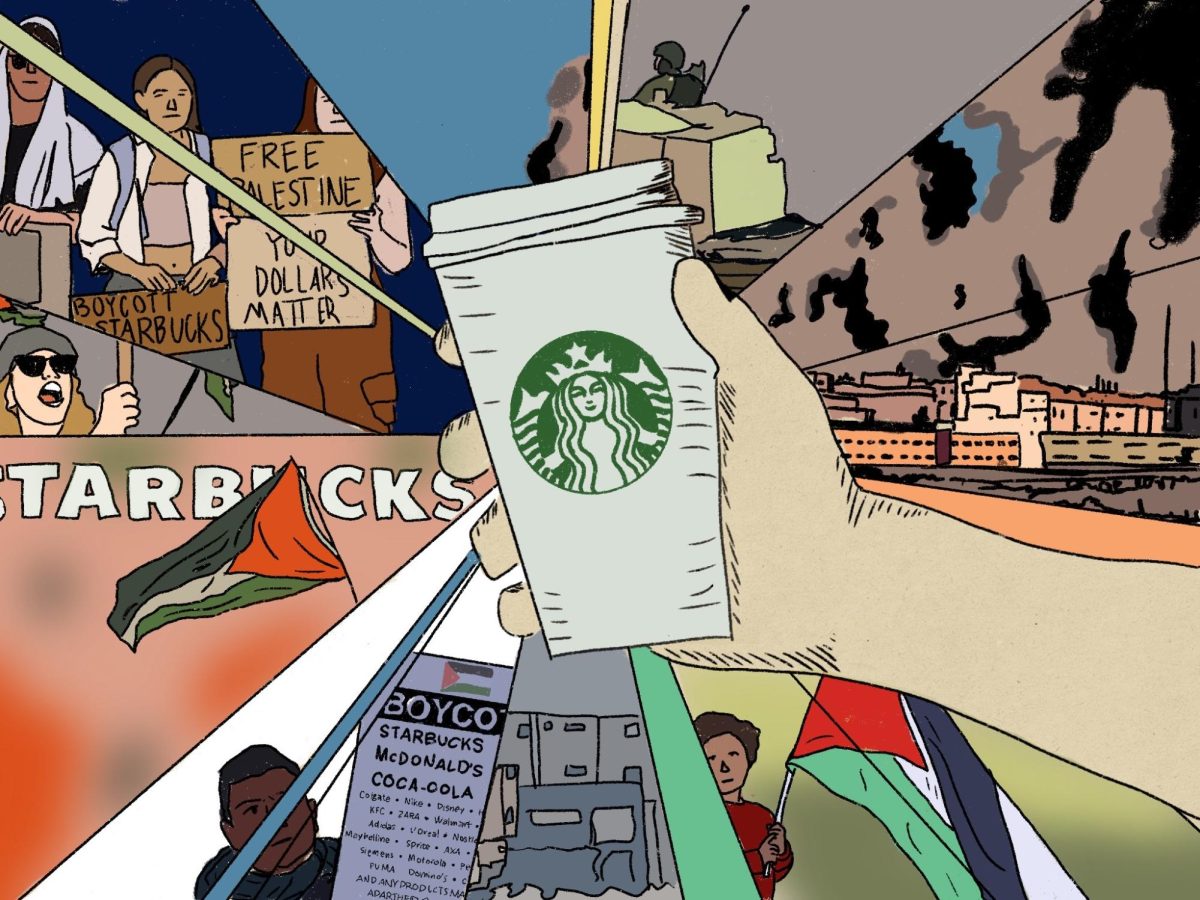


![Instagram Reels Takes a Win Over TikTok After Years of Downgrades [Opinion]](https://FHNtoday.com/wp-content/uploads/2024/03/IMG_0758-e1711431070794.jpeg)